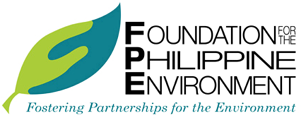News
FPE Holds National Consultation on Adopting Sustainable Financing Mechanisms for Watershed Rehabilitation and Management
Posted on June 28, 2016The National Consultation-Workshop on Sustainable Financing Mechanisms (SFM) for Watershed Rehabilitation and Management, particularly, UC-EC (Universal Charge-Environmental Charge) and ER (Energy Regulation) 1-94, as amended, began June 29 until July 1, 2016 at Fersal Hotel, Diliman, Quezon City.
The national consultation aimed to gather stakeholders to discuss ways forward for sustainable financing mechanisms for watershed rehabilitation management in the Philippines. While watersheds are the main source of energy of communities all over the country, one of the main gaps of the EPIRA (Electric Power Industry Reform Act), or Republic Act 9136, in particular, ER 1-94, as amended, and UC- EC, is the lack of enabling mechanisms for Indigenous Peoples (IPs), to access financial benefits. Of the 11 watersheds in the Philippines, 9 are in IP ancestral domains. The EPIRA mandates that charges billed from consumers (the UC-EC) for the use of energy from watersheds should be intended solely for their rehabilitation and management.

FPE has been advocating for the establishment of a localized, multi-sectoral Watershed Management Council since 2014 through multi-stakeholder consultations and proposals to amend ER-194 and the UC-EC. FPE has also proposed that the definition of a watershed (in the context of ER 1-94 and the UC-EC) as “the topographic and hydrological boundary that starts from the highest ridge, where surface runoff starts to flow, to the point of the last scheme of water utilization, which is the hydro or geothermal power plant,”—which involves not just the lowland communities, but the upland ICCs’ (Indigenous Cultural Communities) / IPs’ (Indigenous Peoples) as well.

The 3-day national consultation began with a discussion on the state of watersheds, its services, and various sustainable financing mechanisms, and then open the floor for discussion on EPIRA vis-à-vis IPRA, or the Indigenous Peoples Rights Act (Republic Act 8671). IPRA states that rights to ownership and possession of ICCs / IPs to their ancestral domain shall be recognized and protected—and this includes the bodies of water they occupy and are stewards of. On day 2 of the national consultation, a critique was made on Plan 13 / the National Power Corporation’s (NPC) watershed management plans. Presentations of each concerned watershed on ways forward was done on the same day, and next steps per watershed, identified.
FPE has been keen on facilitating partnerships towards equitable, sustainable, and inclusive watershed conservation and management, through sustainable financing mechanisms and the amendment of ER 1-94 and UC-EC, by institutionalizing the involvement of ICCs / IPs as stewards of their ancestral domains.1 FPE continues to advocate watershed management as critical to biodiversity conservation through the active participation of IP communities in environmental governance.

1 BUHITA, FPE, NCIP petition with the ERC: PETITION FOR THE AMENDMENT OF ERC RESOLUTION NO. 18, SERIES OF 2011 OR THE RESOLUTION ADOPTING THE RULES AND PROCEDURES GOVERNING THE UTILIZATION AND DISBURSEMENT OF THE UNIVERSAL CHARGE ENVIRONMENTAL CHARGE
Read More:
- Executive Director Dr. Jerome L. Montemayor carried the banner of the Foundation for the Philippine Environment and the larger civil society during the SBSTTA 26 and SBI 4 meetings in Kenya
- Call for Proposals for the SGP-8 Country Programme Strategy
- #Y4B Ambassadors: JOEPET JEROME S. JARO
- #Y4B Ambassadors: MELLARD MANOGURA
- #Y4B Ambassadors: MARY JANE P. MAGAN
- #Y4B Ambassadors: SHRI TAHANIE B. MACAUMBAO

 DISPLAY CALENDAR
DISPLAY CALENDAR
 Read Policy Briefs
Read Policy Briefs
 View Our Partners
View Our Partners
 Access Grants MIS
Access Grants MIS
 Login to Webmail
Login to Webmail